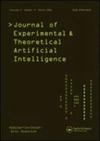基于质心的蛋白质相互作用特征提取新方法
IF 1.7
4区 计算机科学
Q3 COMPUTER SCIENCE, ARTIFICIAL INTELLIGENCE
Journal of Experimental & Theoretical Artificial Intelligence
Pub Date : 2022-03-24
DOI:10.1080/0952813X.2022.2052189
引用次数: 2
摘要
摘要蛋白质一直是生物体生物学的核心部分,了解蛋白质分子水平通讯的本质是至关重要的,其中蛋白质-蛋白质相互作用(PPIs)的预测起着主要作用。本文提出了一种新的概率特征提取技术,称为基于质心的特征(CF),简称CF- ppi,从蛋白质序列中生成新的特征,然后使用随机森林作为分类器来预测PPIs。CF-PPI考虑场景中蛋白质键的剩余能量,检测蛋白质之间的相互作用,并利用概率特征向量解决蛋白质长度变化问题。本文使用的PPI数据集为S. cerevisae、H. pylori和Human,使用CF-PPI和Random Forest作为分类器,平均准确率分别达到96.25%、97.68%和97.69%,对比结果优于其他已有结果。AUC得分也被评估,此外,使用其他五个独立于训练集的物种数据集进行盲测,这些数据集具有相同的建议特征方法。实验结果表明,CF-PPI在蛋白质组学研究中具有广阔的应用前景。本文章由计算机程序翻译,如有差异,请以英文原文为准。
CF-PPI: Centroid based new feature extraction approach for Protein-Protein Interaction Prediction
ABSTRACT Protein is always a central part of the biology of the organism, it is essential to be familiar with the nature of proteins’ molecular level communications, in which the prediction of Protein-Protein Interactions (PPIs) plays the main role. This article proposes a new probabilistic feature extraction technique, termed Centroid-based feature (CF) abbreviated as CF-PPI, to generate a new feature from protein sequence, and then the random forest is used as a classifier to predict PPIs. CF-PPI considers the residual energy of the protein bond in the scenario to detect the interaction between proteins and resolve the protein’s length variation issue using probabilistic feature vectors. The PPI datasets which are used in this article are S. cerevisae, H. pylori, and Human, which achieved the average accuracy of 96.25%, 97.68%, and 97.69% respectively using the CF-PPI and Random Forest as a classifier and the comparison result proved superior to other existing results. The AUC score is also evaluated, additionally, a blind test is performed using five other species’ datasets which are independent of the training set with the same proposed feature approach. The experimental results prove that the CF-PPI is very promising and beneficial for looming proteomics research.
求助全文
通过发布文献求助,成功后即可免费获取论文全文。
去求助
来源期刊
CiteScore
6.10
自引率
4.50%
发文量
89
审稿时长
>12 weeks
期刊介绍:
Journal of Experimental & Theoretical Artificial Intelligence (JETAI) is a world leading journal dedicated to publishing high quality, rigorously reviewed, original papers in artificial intelligence (AI) research.
The journal features work in all subfields of AI research and accepts both theoretical and applied research. Topics covered include, but are not limited to, the following:
• cognitive science
• games
• learning
• knowledge representation
• memory and neural system modelling
• perception
• problem-solving

 求助内容:
求助内容: 应助结果提醒方式:
应助结果提醒方式:


